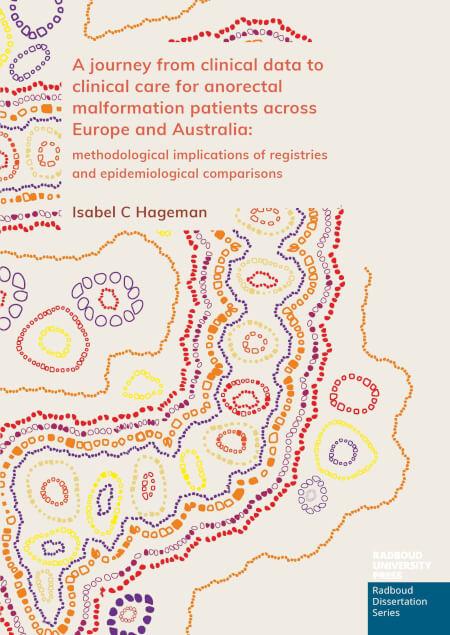A journey from clinical data to clinical care for anorectal malformation patients across Europe and Australia: Methodological implications of registries and epidemiological comparisons
Keywords:
Anorectal malformations, Registry, Pediatric surgerySynopsis
Anorectal malformations (ARM) are rare conditions of the rectum and anus. Due to the rarity of ARM, research is challenging. Patient registries, where hospitals from multiple countries collect data, offer a solution. This thesis studied the requirements and challenges of such registries. As a result, a new registry was established for ARM patients in Australia and New Zealand. Two large existing registries were used to describe and compare symptoms and treatments of ARM patients in Europe and Australia. Specific ARM types, malformations of other body parts, and certain surgical techniques had a higher risk for complications. Although European and Australian patients were similar, their treatments differed, where less frequently performed procedures developed more complications. Therefore, European surgeons can learn more about these procedures from Australian surgeons, and vice versa. Collaboration, both in research and in clinical practice, is fundamental to achieve the ultimate goal of improving care for ARM patients.

Published
Series
Categories
License

This work is licensed under a Creative Commons Attribution-NonCommercial-NoDerivatives 4.0 International License.

